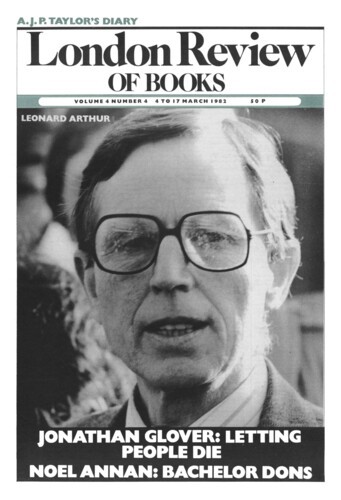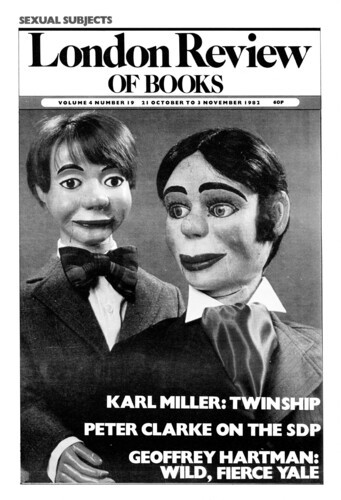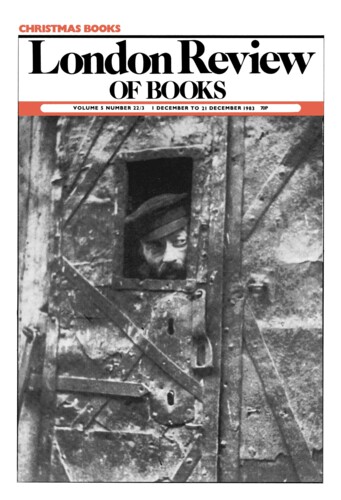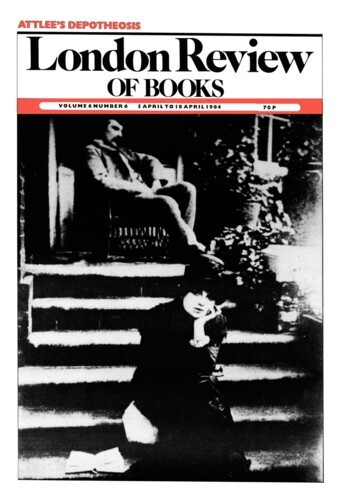Memories of an Edwardian Girlhood
Barbara Wootton, 4 March 1982
Carol Dyhouse’s book is concerned only with girls, and mainly with those drawn from middle or upper-class circles, although she makes one substantial digression in which she contrasts their educational history with that of their working-class contemporaries in the elementary schools of the day. Stephen Humphries’s story, on the other hand, theoretically covers both sexes, though boys and youths loom larger than their feminine counterparts, and his horizon does not extend beyond the working classes. Both stories are exceedingly well documented, but whereas Dyhouse draws largely on written memoirs, biographies and other published studies, Humphries justly observes that most of what has been written about working-class youths of earlier generations has not come from the subjects themselves, and therefore necessarily presents interpretations of working-class culture by middle-class outsiders. His book is an attempt to redress the balance by ‘rewriting the history of working-class childhood and youth largely in the words of working-class people who themselves experienced it between 1889 and 1939’. Since, however, few such people have left written records, Humphries’s data have been almost exclusively gathered from interviews with men and women now of advanced age (there cannot be many who go back to 1889) recounting childhood experiences.




